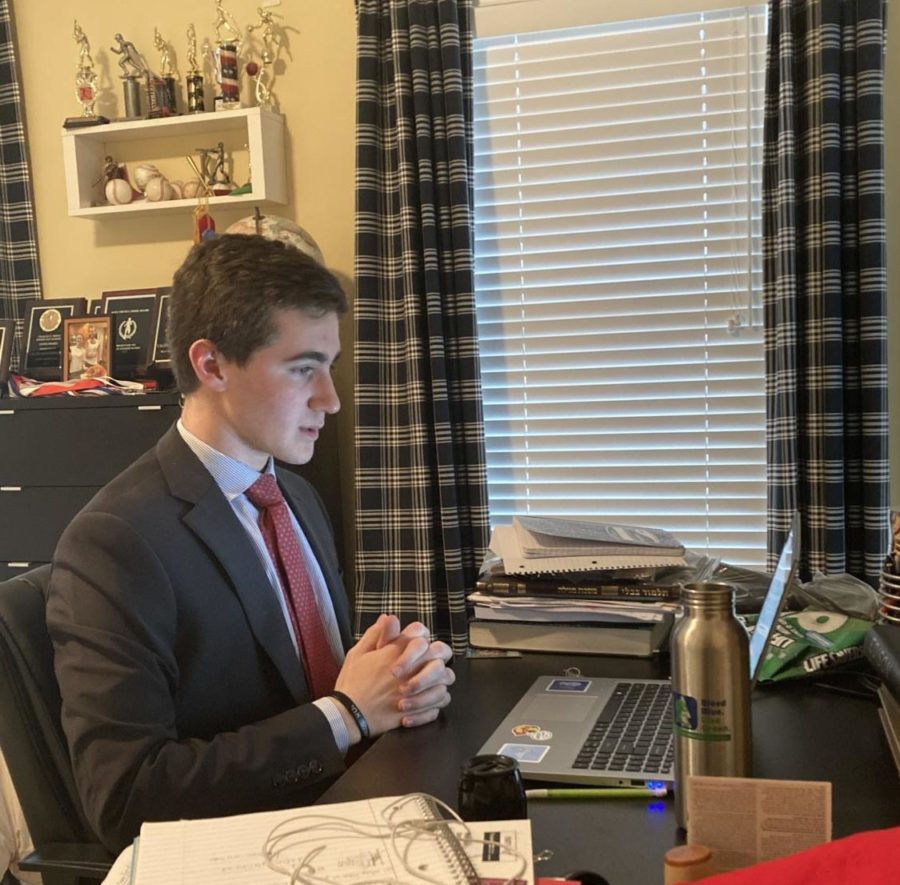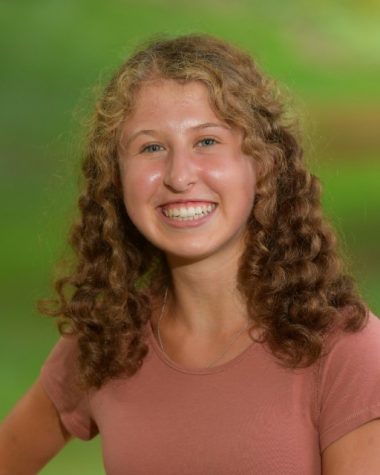Debate team finishes the virtual season with a two-day playoff tournament
photo courtesy of Ian Gershengorn
Junior Nathan Gershengorn dresses professionally for debates on Zoom, just as he would if debate was in-person.
March 19, 2021
Seven pairs from the Margolius Family Debate Team competed in debate playoffs on Wednesday, March 17. After a long afternoon, two of these seven pairs qualified to proceed to the final 16 on Thursday, March 18. Neither of the two remaining pairs proceeded to the final eight.
“Nathan [Gershengorn] and I approached it with the idea that we made it this far; let’s just see what happens and try our best,” junior Naomi Gould, who won all three rounds on Wednesday, said. “It turns out that that ended up working. We were able to approach each debate with a fresh mindset and a clear mind, and we gave it our all.”
At the beginning of the year, the debate team was unsure if they would be able to participate because Montgomery County Public Schools were concerned about the privacy and logistics of students outside of the MCPS system attending their Zooms. In response, the CESJDS debate team petitioned the county, and after much time and effort, MCPS decided to allow JDS to participate. Because of this and the transition online, the debate season began a bit later than usual.
While debate season typically consists of 10 debate rounds, this year, due to the late start, there were only eight rounds. This change meant that the number of wins to qualify a pair for playoffs decreased from six to four. The playoff tournament was played as a single-elimination tournament, meaning the competition followed a large bracket of teams from MCPS. JDS and Melvin J. Berman Hebrew Academy are the only private schools that participate.
If teams won all their rounds on Wednesday, they advanced to Thursday to compete with a total of sixteen teams for the county championship. Two JDS teams advanced to the final sixteen. According to Debate Team Adviser Tori Ball, the last time a JDS team made it to the final sixteen was in 2019.
The debate topic for the playoff tournament was “Resolved: On balance, the benefits of creating the United States Space Force outweigh the harms.”
“We’ve had better ones, but it’s pretty interesting cause you get to learn about how the military works and foreign relations and space,” Gershengorn said.
Although this season was virtual, it looked very similar to previous years in many ways. Aspects such as debate topics, weekly club meetings and the research process have all remained the same.
“Obviously, we’re not in-person, but beyond that, it is very similar,” Gershengorn said. “They kept the exact same structure and the format of everything, except that instead of, you know, talking to each other, you’re talking to the screen.”
Because the debates are on Zoom, pairs had to find new ways to communicate with each other during and in-between debates. While pairs easily found ways to communicate like the Zoom chat function and quick facetime calls, other things were harder to adapt to.
“It is a lot harder to have the part where you are debating back and forth with someone over Zoom because you have to keep unmuting and muting when you’re not talking so that part is a little harder,” Gershengorn said.
Despite the challenges, debaters enjoyed the virtual season and are proud of their work at playoffs.
“It got progressively harder because each round you would be facing the winners of the last round, so by the end of the night, in our last debate, we were really pushing ourselves mentally,” Gould said. “It was kind of tiring, but at the same time, very rewarding because you’re forced to think about parts of the debate that you hadn’t previously … which is kind of the reason you do the club.”








